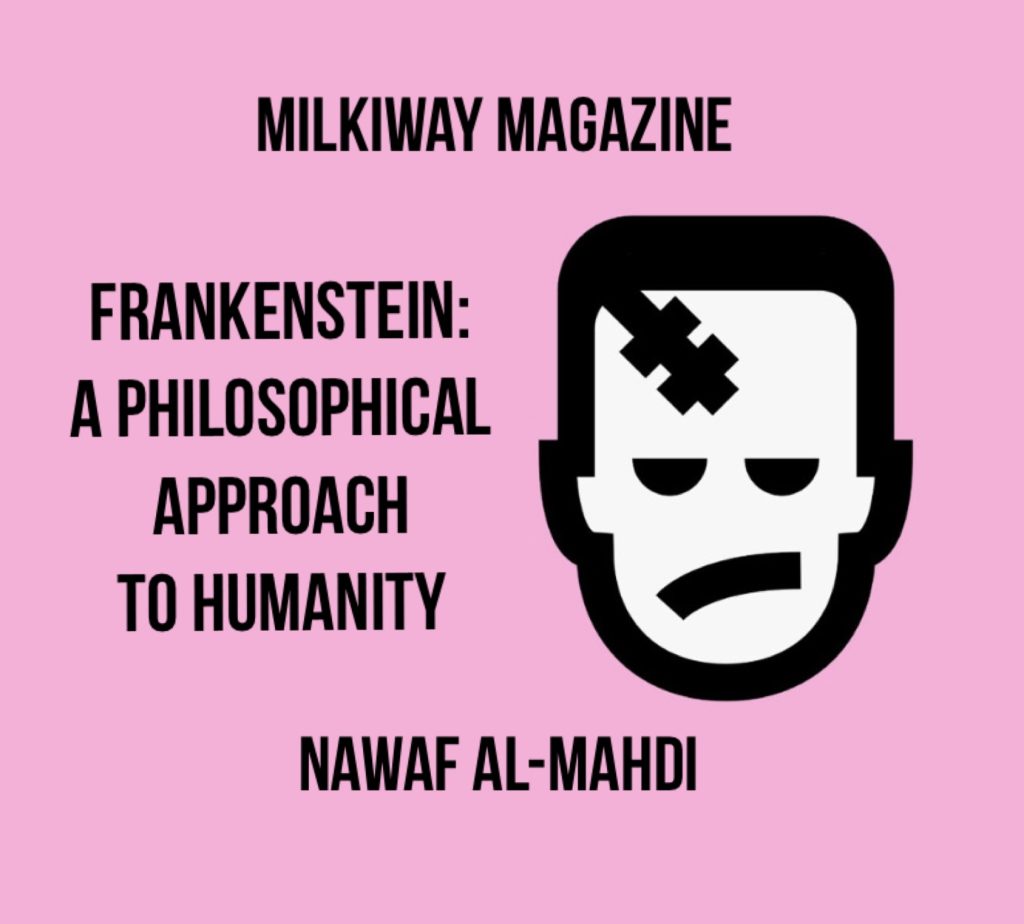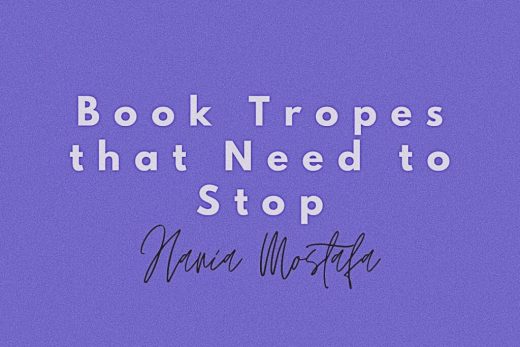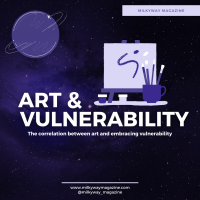
Writer: Nawaf Al-Mahdi
Editor: Abdulelah Ba Tarfi
SPOILER ALERT: This article will involve some scenes from the novel Frankenstein, so if you have not read Frankenstein yet, I would prefer that you read the novel fist.
I vividly remember taking 19th Century British Literature class in late 2018, and one of the four major readings for the class was Frankenstein by Mary Shelly. I thought the book was going to be a boring novel of a monster stitched up by from limbs of chemically combined recently buried corpses.
From the perspective of an English major student such as myself, I began questioning WHY Frankenstein was regarded a monster? Is it because it was simply an ugly creature? Or because it began moaning and groaning the moment it began its life after being zapped by a lightening strike. What makes the novel so intriguing is how Frankenstein’s monster is giving us HIS side of the story after encountering his creator at the snowy mountains, showing readers what is it like to be the only living creature of your own kind.
In the novel, there is a common misconception that most readers do when referring to the monster as Frankenstein, while clearly the narrator (its creater Victor Frankenstein) refers to the monster as “The Creature”; but I digress. The creature in one scene in the novel responded to his master’s death threats with this monologue:
‘I expected this reception,’ said the daemon. ‘All men hate the wretched; how, then, must I be hated, who am miserable beyond all living things! Yet you, my creator, detest and spurn me, thy creature, to whom thou art bound by ties only dissoluble by the annihilation of one of us. You purpose to kill me. How dare you sport thus with life? Do your duty towards me, and I will do mine towards you and the rest of mankind. If you will comply with my conditions, I will leave them and you at peace; but if you refuse, I will glut the maw of death, until it be satiated with the blood of your remaining friends. (Chapter 10; p.113)
Clearly the creature’s anger was justified, and if readers could put themselves in the creature’s shoes, they would surely know the heaving load of misery one could carry from being hated by their own creator. Throughout the novel, the creatures makes a subtle hint by wanting to refer himself as the ‘Adam’ of his own kind, a biblical hint to Shelly’s usage of Adam and Eve as being the first parents of humanity; furthermore, the creature whom I shall refer as ‘Adam’ gives his side of the story of how he learned from his surroundings: from scouring food, listening to new noises, and even see humans other than his creator. He even stumbles upon a poor family and lives in the storage room that is connected from their house outside, listening to the way they talk, read, and learn from each other. After being discovered, he was shunned away as a stranger without being given the chance to defend himself. Not only has ‘Adam’ given his creator a chance to redeem himself, but he even returns the death threats of murdering his creator’s family should “Adam’s” life be in danger.
It is ironic how humanity desires for progress in the fields of science and exploration of the unknown, yet WE are afraid of what is unknown. Because the novel was written in the 19th century, it was an era of philosophical and political uprisings, particularly in literature and critical essays against industrialization and corruption of civilization in destroying nature.
Moreover, the morale of the novel is the consequences of one tampering with the balanced scales of life and death, and in a way revealing the inner xenophobia within man when encountering a race other than his. We humans are not even worthy of possessing the genius and power of controlling the scales of life and death; how so? History has provided enough evidences as it is: Colonialism, WWI & WWII, the Cold War, etc. To end this essay with a high note, the next time you see someone calling Frankenstein’s monster AS Frankenstein, tell them the grammatical difference, give them a slap on the face (although clearly UNADVISABLE in real life), simply refer to Victor Frankenstein’s creation as ‘Adam.’






